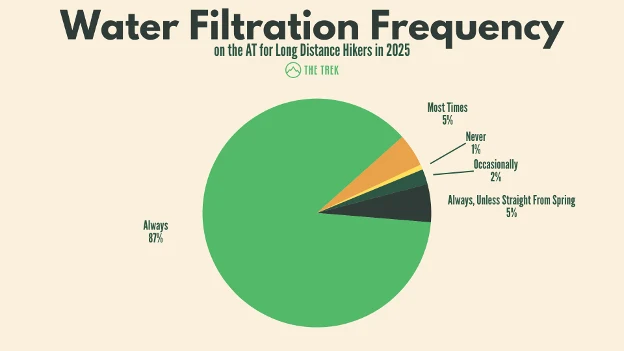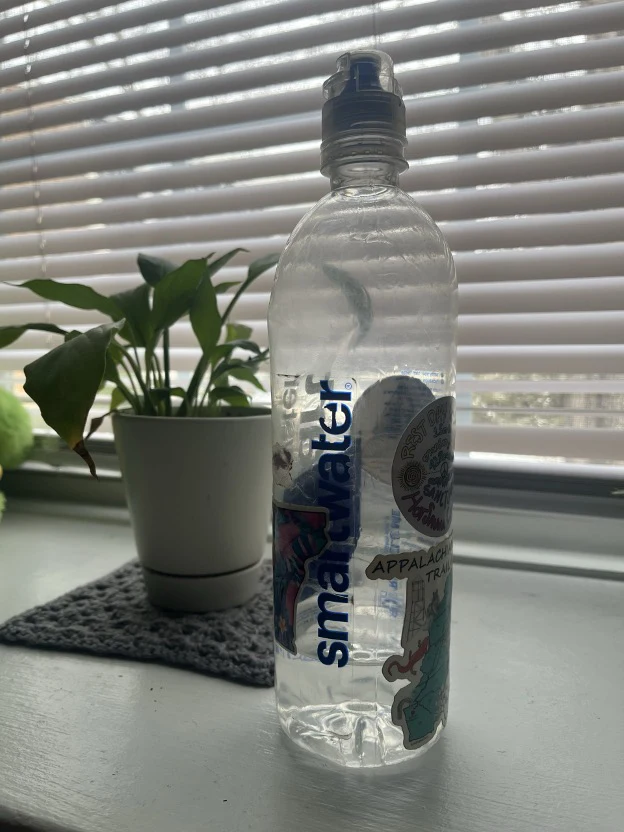Pi bon espre ak repouse soti nan Biznis Andedan
Pi bon espre ak repouse soti nan Biznis Andedan

Pi bon espre ak repouse soti nan Biznis Andedan
Pi bon espre ak repouse soti nan Biznis Andedan
Bug spray isn't always the first thing you think of when deciding what to pack for a camping or backpacking trip. Despite being often overlooked, it's a vital addition to anyone's pack (along with general mosquito repellents) — dealing with swarming bugs or mosquito bites is never an enjoyable way to spend time outdoors.
DEET (diethyltoluamide) remains the most popular bug spray ingredient due to its effectiveness at protecting from ticks, mosquitos, other bugs, and all the diseases they carry. Decades of research prove DEET to be the best for protecting humans from these bugs, though it is toxic to aquatic creatures like fish.
Worthwhile alternatives to DEET are picaridin and permethrin. These ingredients are less toxic but likely just as effective at repelling bugs. The scientific community is still testing these alternatives, though, so DEET remains king.
While chemical bug sprays may or may not harm you, or the flora and fauna you encounter, they're highly toxic to many aquatic animals, can trash your clothes, and they just smell terrible. Some people are even allergic to them, too.
For anyone sensitive to DEET or other chemical bug sprays, we've found a few eco-friendly picks that won't hurt you or the environment as much as other sprays. Just know that DEET and picaridin are still the most effective at repelling dangerous ticks and mosquitos.
Read the full guide from Owen Burke on Business Insider's website here.
Pi bon espre ak repouse soti nan Biznis Andedan


Pi bon espre ak repouse soti nan Biznis Andedan
Bug spray isn't always the first thing you think of when deciding what to pack for a camping or backpacking trip. Despite being often overlooked, it's a vital addition to anyone's pack (along with general mosquito repellents) — dealing with swarming bugs or mosquito bites is never an enjoyable way to spend time outdoors.
DEET (diethyltoluamide) remains the most popular bug spray ingredient due to its effectiveness at protecting from ticks, mosquitos, other bugs, and all the diseases they carry. Decades of research prove DEET to be the best for protecting humans from these bugs, though it is toxic to aquatic creatures like fish.
Worthwhile alternatives to DEET are picaridin and permethrin. These ingredients are less toxic but likely just as effective at repelling bugs. The scientific community is still testing these alternatives, though, so DEET remains king.
While chemical bug sprays may or may not harm you, or the flora and fauna you encounter, they're highly toxic to many aquatic animals, can trash your clothes, and they just smell terrible. Some people are even allergic to them, too.
For anyone sensitive to DEET or other chemical bug sprays, we've found a few eco-friendly picks that won't hurt you or the environment as much as other sprays. Just know that DEET and picaridin are still the most effective at repelling dangerous ticks and mosquitos.
Read the full guide from Owen Burke on Business Insider's website here.
Pi bon espre ak repouse soti nan Biznis Andedan


Pi bon espre ak repouse soti nan Biznis Andedan
Bug spray isn't always the first thing you think of when deciding what to pack for a camping or backpacking trip. Despite being often overlooked, it's a vital addition to anyone's pack (along with general mosquito repellents) — dealing with swarming bugs or mosquito bites is never an enjoyable way to spend time outdoors.
DEET (diethyltoluamide) remains the most popular bug spray ingredient due to its effectiveness at protecting from ticks, mosquitos, other bugs, and all the diseases they carry. Decades of research prove DEET to be the best for protecting humans from these bugs, though it is toxic to aquatic creatures like fish.
Worthwhile alternatives to DEET are picaridin and permethrin. These ingredients are less toxic but likely just as effective at repelling bugs. The scientific community is still testing these alternatives, though, so DEET remains king.
While chemical bug sprays may or may not harm you, or the flora and fauna you encounter, they're highly toxic to many aquatic animals, can trash your clothes, and they just smell terrible. Some people are even allergic to them, too.
For anyone sensitive to DEET or other chemical bug sprays, we've found a few eco-friendly picks that won't hurt you or the environment as much as other sprays. Just know that DEET and picaridin are still the most effective at repelling dangerous ticks and mosquitos.
Read the full guide from Owen Burke on Business Insider's website here.
























































































































